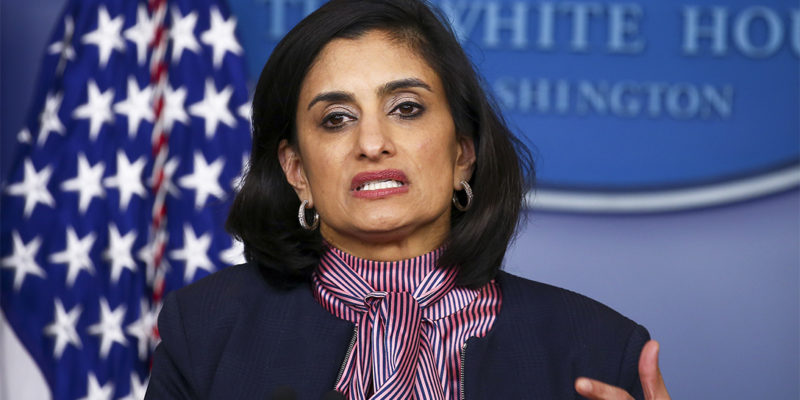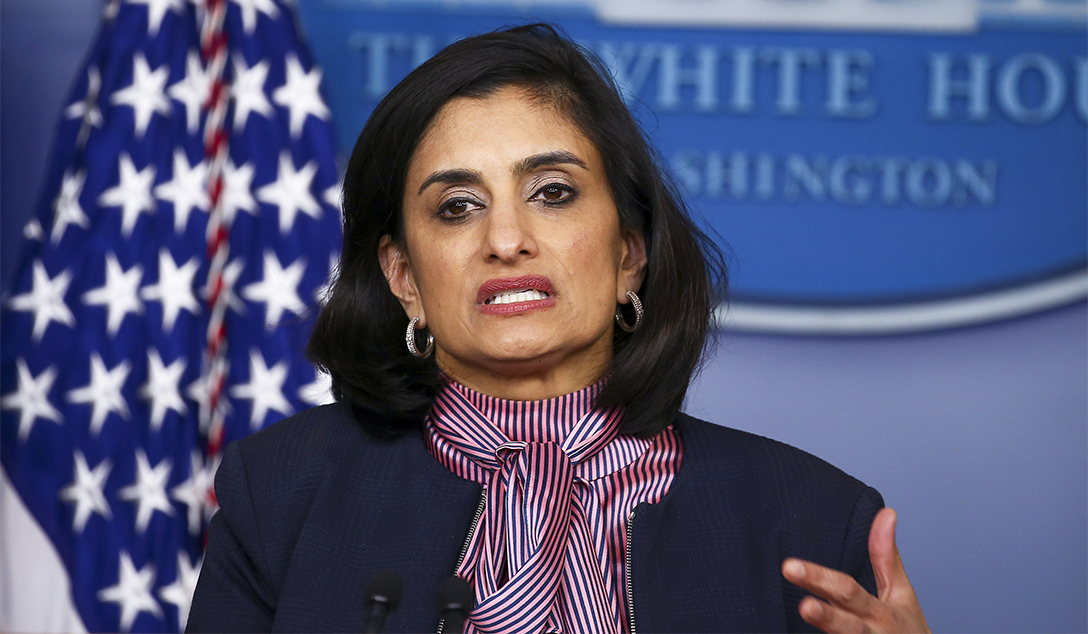
Today, hospitals will be receiving notification of what they need to do to meet the daily reporting requirements for COVID-19 and flu data, with failure to do so resulting in the loss of participation in the Medicare and Medicaid programs.
The enforcement timeline is 14 weeks, starting today.
Hospitals will receive a notice of whether they are meeting the reporting requirements and specific data they need to report, according to Centers for Medicare and Medicaid Services Administrator Seema Verma. The agency is contacting hospitals today to let them know whether the data being submitted to HHS Protect is correct, the specific data needed and the timeline to adjust their data collection to come into compliance if needed.
HIMSS20 Digital
Learn on-demand, earn credit, find products and solutions. Get Started >>
Many may think they’re in compliance on reporting and may not be, Verma said yesterday.
“We’re going to give them that feedback,” she said.
Hospitals that do not report will get multiple notices to come into compliance. If they are noncompliant, they will have 30 days to come into compliance.
If hospitals persist in a failure to report, their conditions of participation in Medicare and Medicaid will be terminated 14 weeks after the first compliance letter, Verma said. Hospitals will have the right to appeal.
CMS will begin publishing, starting October 21, information on hospital compliance and areas in which they need to improve. CMS released the reporting requirement in an interim rule published on September 2.
WHY THIS MATTERS
American Hospital Association president and CEO Rick Pollack called the data reporting requirement “an overly heavy-handed approach that could jeopardize access to hospital care for all Americans.”
“The reality is many hospitals could not keep their doors open should they no longer receive payment from Medicare and Medicaid, affecting care for all Americans in the midst of a global pandemic,” Pollack said.
Verma said the payment termination is the only sanction CMS has available. The interpretive guidance on COVID data reporting does answer some of the questions hospitals and health systems have been asking about compliance since the interim final rule was released, Pollack said.
The guidance reduces the reporting burden on psychiatric and rehabilitation hospitals, which generally do not treat COVID-19 patients. Verma outlined three ways hospitals can report data: through the state, teletracking or their IT vendor.
But logistics are an issue, according to Pollack. “The federal agencies have specified that data can only get into HHS Protect if it goes through a private contractor or through the Department of Health for the state in which the hospital is located,” he said.
“We have observed errors in data processing and confusion about exactly what was being requested at the hospital, state, contractor, and federal level and have worked diligently with the federal agencies to identify and correct those problems. This has resulted in at least 94% of hospitals submitting data. This level of success was made possible by partnership, not mandates.”
WHY THIS MATTERS
Verma is setting the ground rules for compliance with the rule and letting hospitals know they must comply within a 14-week window.
Dr. Deborah Birx, coronavirus response coordinator for the White House, said the use of valid and timely data is needed to improve reporting to the Centers for Disease Control and Prevention. The data is needed to track hospital admission data and fatalities to understand where the epidemic is to meet the needs of hospitals and communities, she said.
The data also helps the supply chain in the distribution of the antiviral medication remedesivir. “It’s important to know gaps in the database,” Birx said. “Daily data is critical for decision making.”
CDC Director Dr. Robert Redfield said there is uncertainty in what will happen this fall and winter with both the risk of flu and COVID-19 cases. “The CDC is preparing for influenza and COVID-19, as people go back to work and school risk rises.” he said.
THE LARGER TREND
The requirement on hospitals is to encourage daily reporting of both COVID-19 and flu cases.
Six variables are included in the reporting requirements, including the disease, the number hospitalized patients, the number of patients who are in the ICU and patients who have both flu and COVID.
ON THE RECORD
“The entire hospital field remains fully committed to ensuring that the federal government gets the data it needs and urges HHS to only request data that are essential to critical decisions so that hospital staff can remain focused on their primary responsibility – caring for patients,” said Pollack.
Twitter: @SusanJMorse
Email the writer: susan.morse@himssmedia.com















